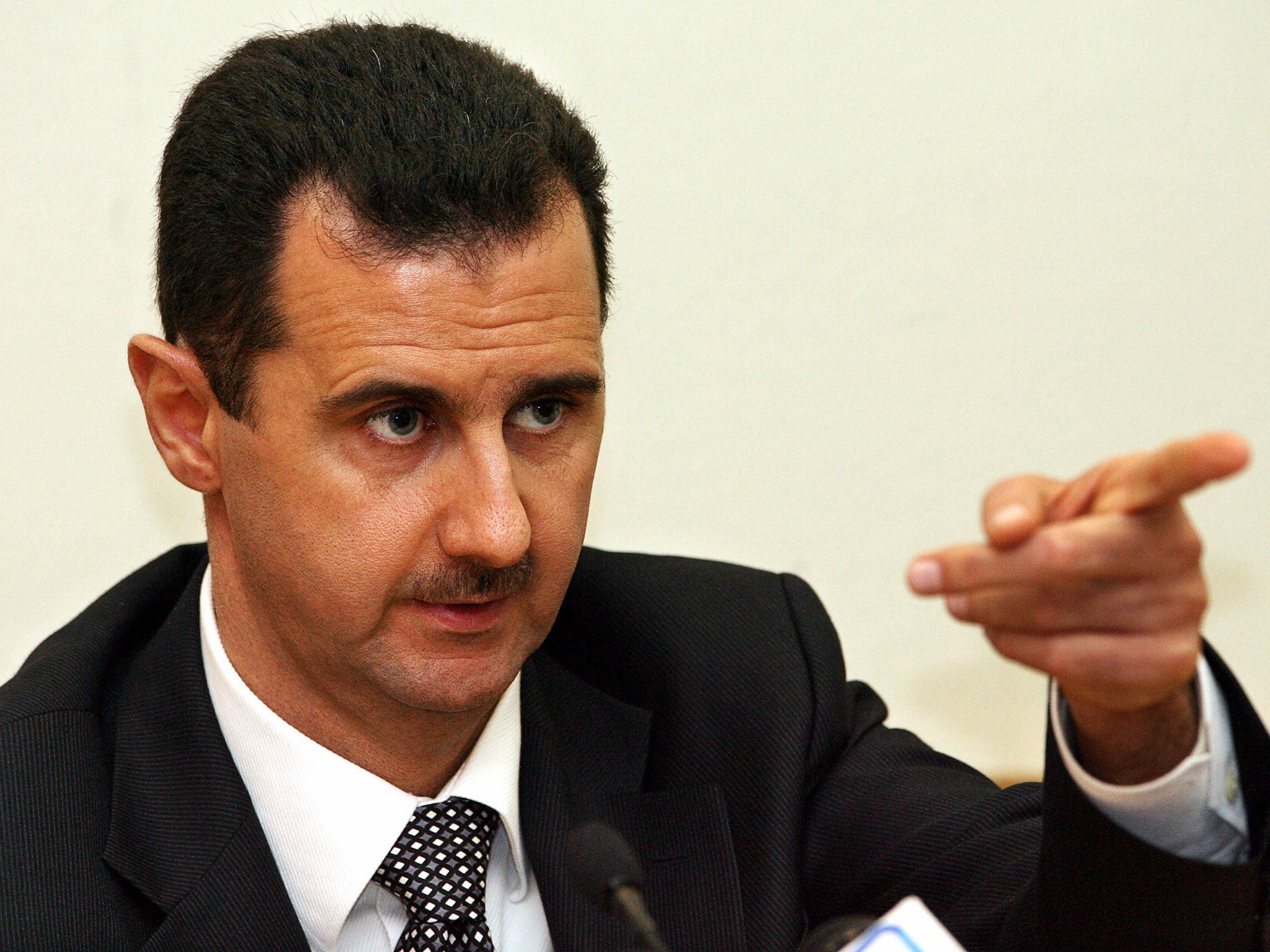As attention turns to Geneva, Assad is starving millions of Syrians
6.3 million people are now in critical need of food

Your support helps us to tell the story
From reproductive rights to climate change to Big Tech, The Independent is on the ground when the story is developing. Whether it's investigating the financials of Elon Musk's pro-Trump PAC or producing our latest documentary, 'The A Word', which shines a light on the American women fighting for reproductive rights, we know how important it is to parse out the facts from the messaging.
At such a critical moment in US history, we need reporters on the ground. Your donation allows us to keep sending journalists to speak to both sides of the story.
The Independent is trusted by Americans across the entire political spectrum. And unlike many other quality news outlets, we choose not to lock Americans out of our reporting and analysis with paywalls. We believe quality journalism should be available to everyone, paid for by those who can afford it.
Your support makes all the difference.As international powers prepare for the Geneva II peace talks to end the civil war in Syria, the regime of Bashar al-Assad has been accused of systematic torture and murder of thousands of detainees, with 55,000 photos appearing to show crimes of extraordinary brutality.
The hope is that these images will spur major foreign powers into action during the talks. But they form only one of the more horrendous abuses of the Assad regime. One other tactic deserves particular attention. The regime has been using starvation to put pressure on opposition-held areas. If there is any hope of building confidence among Syrians in these talks, effective pressure must be placed on the regime to end this practice.
The number of starving Syrians and Palestinians keeps rising. According to SHARP (the Syrian Arab Republic Humanitarian Assistance Response Plan) 6.3 million people are in critical need of food and agriculture assistance today, an increase of more than 50 per cent since June 2013.
They are victims of a political strategy, as the Assad regime uses sieges and starvation to impose collective punishment on opposition-held areas. Yarmouk camp, outside the capital Damascus, has been under siege by the government forces since 2012 during which time at least 36 people have died of hunger. The regime has made deals that force local rebel fighters to give up their weapons in return for small amounts of food supplies for local populations. It is an old and dirty game. The same problems can be observed in Homs and in the countryside of Damascus, where many people are also dying from hunger.
Helping them should be a matter of moral and humanitarian urgency. But international organizations and NGOs are having difficulties accessing the besieged areas, even if access is officially approved by the Syrian government. This means that the UN sometimes gets approval from the authorities to enter opposition areas to deliver humanitarian aid - but government checkpoints still do not acknowledge the authorization letters, and delay or even deny access. Either the Syrian regime is not serious about allowing access to aid or they are not able to make consistent decisions because of internal fragmentation.
Meanwhile, interviews with Syrian refugees close to the Turkish border reveal that people in the opposition-controlled areas do not receive enough humanitarian aid as well. Because of the chaos and corruption in the northern part of Syria, with ongoing fighting between the Islamic State of Iraq and the Levant (ISIS) and the Free Syrian Army (FSA), the Syrian National Coalition and FSA are strongly criticized by refugees for neglecting their humanitarian concerns, and for fighting in densely populated urban areas.
These armed opposition groups also need to pay more attention to the basic humanitarian needs of the population. They should be pressed to do more to facilitate the delivery of humanitarian aid, and to keep food supply routes open wherever this is in their power. On top of the problem of access, there are still shortages of supplies from donors.
Addressing the unacceptable problem of starvation should be a key focus of the international powers currently preparing for Geneva II. The Syrian government has announced that it will participate in the talks without any preconditions. At the same time it is still playing the starvation card to gain control over as many towns as possible. This makes it very clear that the Assad regime is not willing to work on a serious political solution to end the Syrian tragedy.
In general Assad’s supporters in both Iran and Russia should put pressure on the Syrian government, alongside the UN, to open supply routes for all kinds of aid as a basic gesture of good faith in the talks. Opposition forces could also be encouraged to exchange aid supply to besieged areas from both sides - the Free Syrian Army has been sieging Nobl and Zahra, in the northern part of Aleppo and one of the regime strongholds with a large Shia population, for more than a year.
For now, the deliberate punishment of civilians through starvation, violence and arrests continues to poison the atmosphere.
Abdullah Ali is a Syrian freelance researcher and journalist, and currently a Fellow at Chatham House
Join our commenting forum
Join thought-provoking conversations, follow other Independent readers and see their replies
Comments